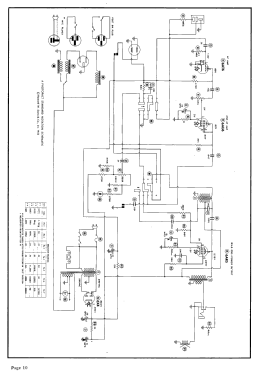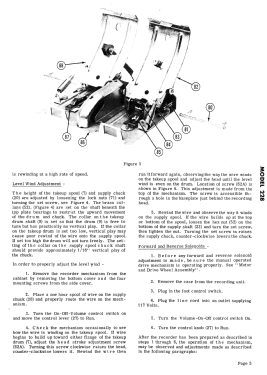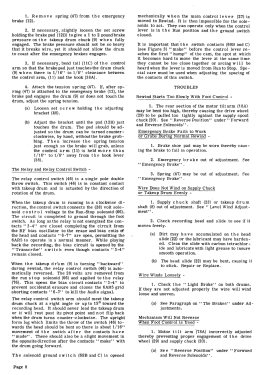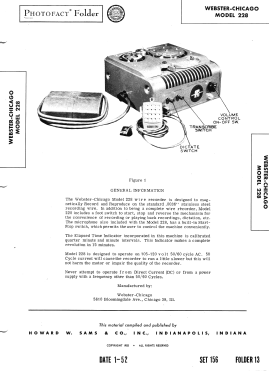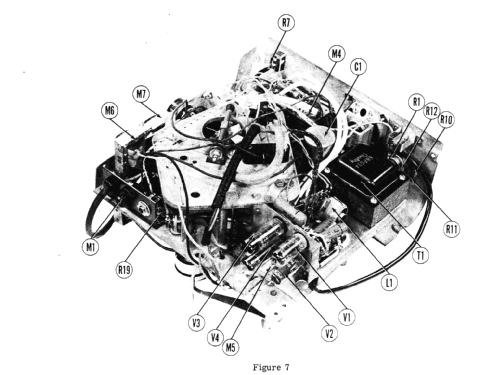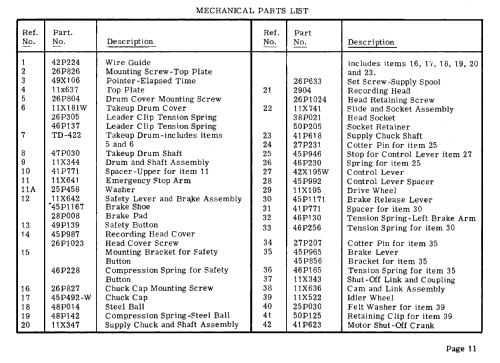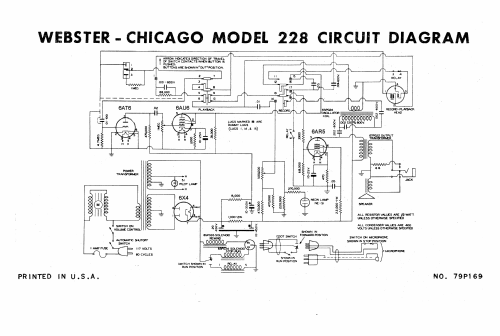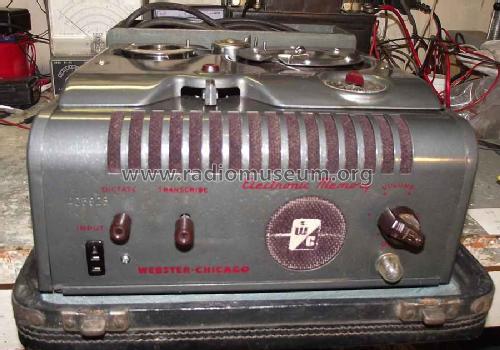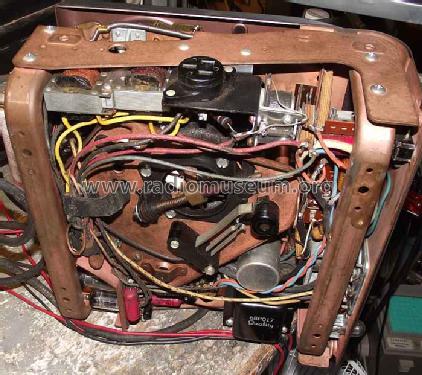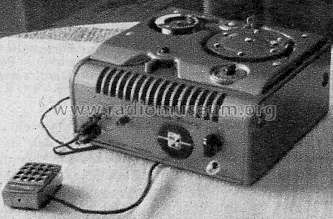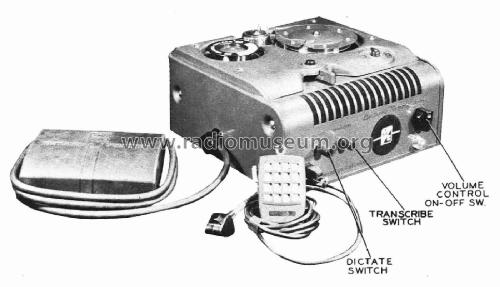Wire Recorder 228
Webster Co., The, Webster-Chicago, Webcor; Chicago (IL)
- Produttore / Marca
- Webster Co., The, Webster-Chicago, Webcor; Chicago (IL)
- Anno
- 1952 ?
- Categoria
- Registratore audio/video e/o riproduttore
- Radiomuseum.org ID
- 98819
-
- Brand: Webcor
Clicca sulla miniatura dello schema per richiederlo come documento gratuito.
- Numero di tubi
- 4
- Principio generale
- Amplificatore audio
- Gamme d'onda
- - senza
- Particolarità
- Registratore (o riprod.) a filo
- Tensioni di funzionamento
- Alimentazione a corrente alternata (CA) / 60 Hz, 117V = 110 -120 Volt
- Altoparlante
- AP magnetodinamico (magnete permanente e bobina mobile)
- Materiali
- Mobile di metallo
- Radiomuseum.org
- Modello: Wire Recorder 228 - Webster Co., The, Webster-
- Forma
- Soprammobile basso, con andamento orizzontale (grosse dimensioni).
- Annotazioni
-
The Webster-Chicago model 228 wire recorder is designed to magnetically record and reproduce on the standard .0036" stainless steel recording wire. In addition to being a complete wire recorder, model 228 includes a foot switch to start, stop and reverse the mechanism for the convenience of recording or playing back recordings, dictation, etc. The microphone also included with the model 228, has a built-in start-stop switch, which permits the user to control the machine conveniently.
- Bibliografia
- Funk-Technik (FT) (6/1952)
- Letteratura / Schemi (1)
- Riparazioni - Scuola Radio Elettra
- Letteratura / Schemi (2)
- Photofact Folder, Howard W. SAMS (Set 156, folder 13, dated 1-52)
- Autore
- Modello inviato da un iscritto da A. Utilizzare "Proponi modifica" per inviare ulteriori dati.
- Altri modelli
-
In questo link sono elencati 448 modelli, di cui 216 con immagini e 371 con schemi.
Elenco delle radio e altri apparecchi della Webster Co., The, Webster-Chicago, Webcor; Chicago (IL)
Musei
Il modello Wire Recorder può essere visto nei seguenti musei.
Discussioni nel forum su questo modello: Webster Co., The,: Wire Recorder 228
Argomenti: 1 | Articoli: 1
Dear colleagues,
I recently had one of these beautiful machines in for a minor service. After getting it to work, I naturally went on to play one of the reels. (It was a recording of the "Bing Crosby Show" taken from a Voice of America broacast. All went well, and at the end of the recording I rewound it. On playing it again, disaster! the wire had jammed between the bulk of the winding and the side of the reel, because the rewinding process had been uneven due to bailer misalignment. I should have inspected the reel before playing to make sure it was tightly wound and, more importantly, even. Alas, this cost me many minutes of the recording, as the resulting tangle was too complicated to undo.
The bailer should move up and down smoothly and wind evenly on the reels. I hope this note saves someone else from making the same mistake.
Regards - Bryce
PS - The neon light serves as a recording level indicator- not an indication that power has been applied.
Bryce Ringwood, 15.Apr.11
